A Political-Historical Drama Tailored for Western Audiences
Bridge of Spies is a compelling political-historical drama centered around the intertwined stories of Rudolf Abel and Francis Gary Powers. However, its narrative and thematic focus lean heavily towards a Western, rather than a Russian, perspective.
The film opens in the summer of 1957, with the FBI’s apprehension of Soviet intelligence officer Rudolf Abel (Mark Rylance) in New York City. Amidst the Cold War tensions, his conviction seems a foregone conclusion. Yet, adhering to legal protocols, James Donovan (Tom Hanks), an insurance lawyer, is appointed as Abel’s defense counsel. Donovan, with no prior experience in espionage cases, reluctantly takes on the task, knowing it will cast him as a pariah. Despite public animosity, Donovan diligently defends Abel, even appealing to the Supreme Court, arguing that the evidence against Abel was obtained through procedural violations. Simultaneously, a U.S. spy plane piloted by Francis Gary Powers (Austin Stowell) is shot down over Soviet airspace. As both spies face lengthy prison sentences, the U.S. government enlists Donovan to negotiate a prisoner exchange in East Germany.
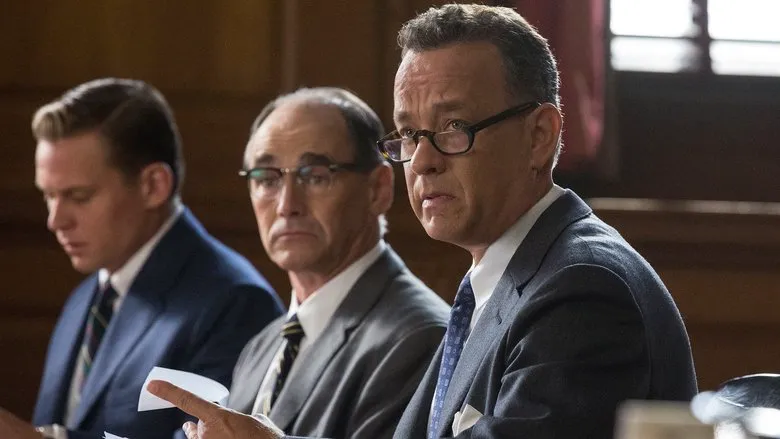
In the film, East Germany is represented in the negotiations by lawyer Wolfgang Vogel, a real person who collaborated with the Stasi and, after Abel, organized the exchange of more than 150 intelligence officers, as well as the transfer of 34,000 political prisoners and 215,000 ordinary citizens to the West.
Spielberg’s Exploration of American Ideals
Steven Spielberg, in his later years, seems to have found a new passion: offering historical lessons to contemporary politicians. Following “Lincoln,” a guide for navigating contentious legislation, Spielberg presents “Bridge of Spies,” a fervent defense of constitutional rights for America’s adversaries and the importance of mutually beneficial negotiations with hostile nations.
 .jpg “Scene from “Bridge of Spies””)
.jpg “Scene from “Bridge of Spies””)
While the screenplay bears the mark of the Coen brothers (Ethan and Joel), the primary writing credit goes to British playwright Mark Charman, a relative newcomer to screenwriting.
These principles may seem self-evident, but the existence of Guantanamo Bay and the prolonged U.S. policy of isolating Cuba suggest otherwise.
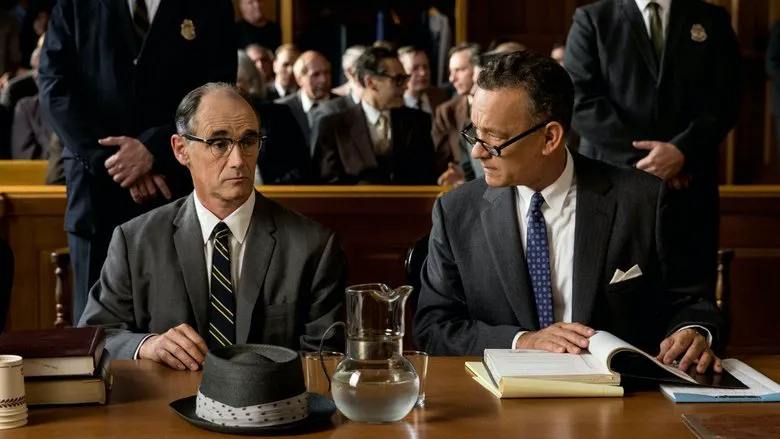 .jpg “Scene from “Bridge of Spies””)
.jpg “Scene from “Bridge of Spies””)
Tom Hanks as the Embodiment of American Virtue
Spielberg employs Tom Hanks, an actor synonymous with portraying “good guys,” to champion these often-ignored ideals. Hanks delivers a performance that embodies the best qualities of an American lawyer. While Donovan’s character is idealized, he remains relatable, making his impassioned speeches feel genuine. Donovan is portrayed not as a complex individual, but as an embodiment of the ideal American lawyer.
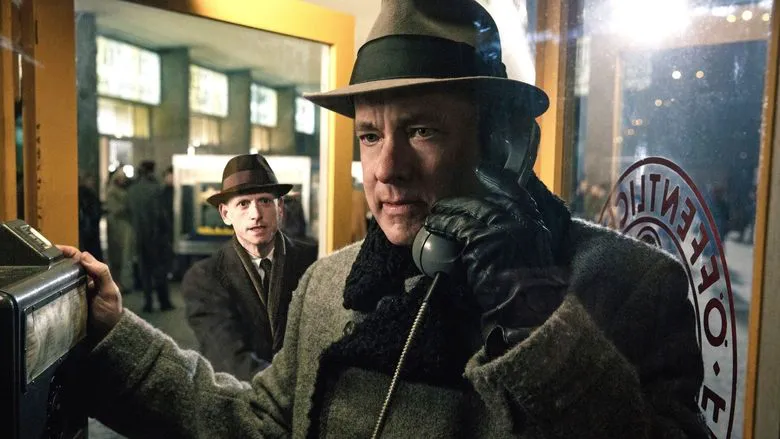 .jpg “Scene from “Bridge of Spies””)
.jpg “Scene from “Bridge of Spies””)
The film omits details about Donovan’s past as a lawyer for the OSS, the CIA’s predecessor, during World War II. This omission paints a picture of Donovan as a pure, unblemished hero. The film also embellishes events, such as a shooting at Donovan’s home and the theft of his coat in East Berlin.
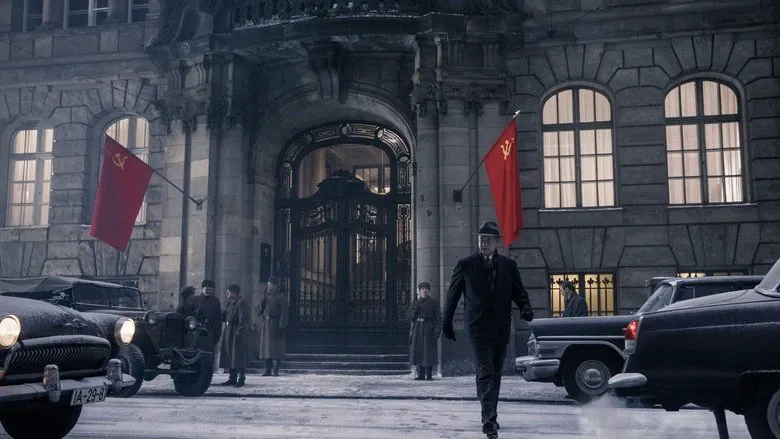 .jpg “Scene from “Bridge of Spies””)
.jpg “Scene from “Bridge of Spies””)
Acknowledging Heroism on Both Sides
To Spielberg’s credit, “Bridge of Spies” portrays both Donovan and Abel as heroes. Abel is depicted as an unwavering soldier, stoic even in the face of a possible death sentence. Powers is similarly portrayed as a resilient, silent hero. The film glosses over Powers’ detailed confession and plea for leniency in Moscow.
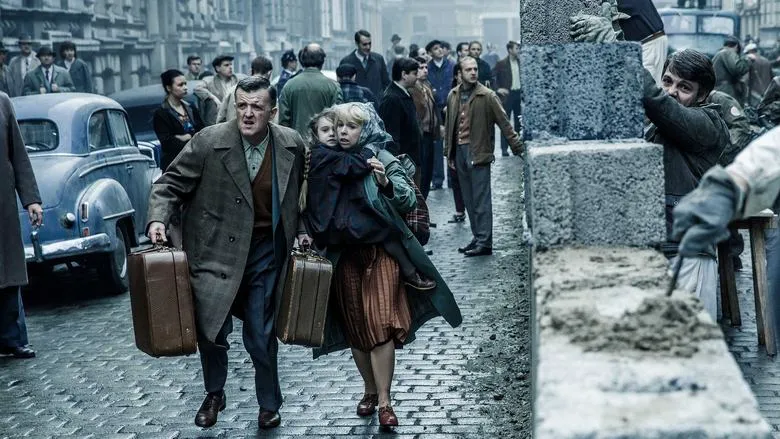 .jpg “Scene from “Bridge of Spies””)
.jpg “Scene from “Bridge of Spies””)
Navigating the Complexities of the Exchange
The second half of the film shifts to Berlin, where Donovan navigates the treacherous political landscape, negotiating between the U.S., USSR, and East Germany. While others focus on a one-for-one exchange, Donovan insists on securing the release of both Powers and Frederick Pryor, an American student captured in East Germany.
 .jpg “Scene from “Bridge of Spies””)
.jpg “Scene from “Bridge of Spies””)
Donovan faces bureaucratic hurdles and struggles to identify the true decision-makers. Driven by a desire to rescue his countrymen from “communist hell,” Donovan employs his resourcefulness and eloquence to achieve his goals.
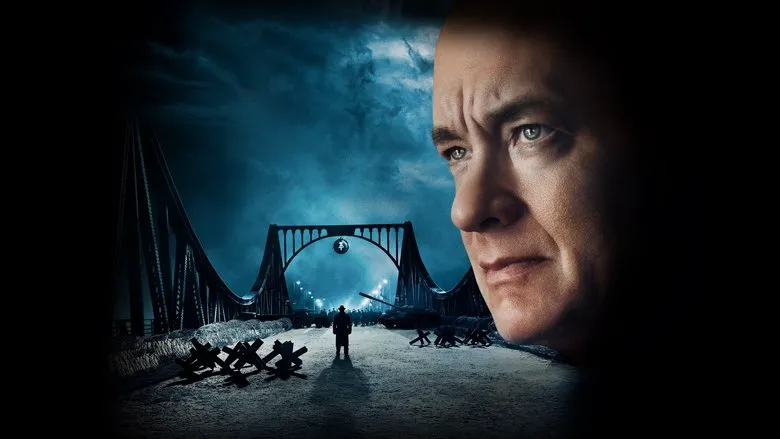 .jpg “Scene from “Bridge of Spies””)
.jpg “Scene from “Bridge of Spies””)
A Western-Centric Perspective
“Bridge of Spies” is a commendable film for American audiences, reinforcing American values and highlighting a story of humanitarian diplomacy. While lacking the action of blockbuster films, it offers an engaging narrative within its chosen genre.
However, from a different perspective, the film’s omissions are more significant. The film focuses less on Abel’s espionage activities in the U.S. and the downing of Powers’ spy plane. Donovan’s legal and political moralizing holds less relevance, given differing legal systems and diplomatic approaches. The film’s focus on the intricacies of the exchange is less compelling. What Americans find interesting and valuable in “Bridge of Spies” may seem trivial. Nevertheless, it is gratifying to see a competent political film that recognizes the heroism of our intelligence officer and, despite the abundance of anti-Soviet attacks, says more bad things about America than about the USSR. Well, let the Germans be offended by East Germany!